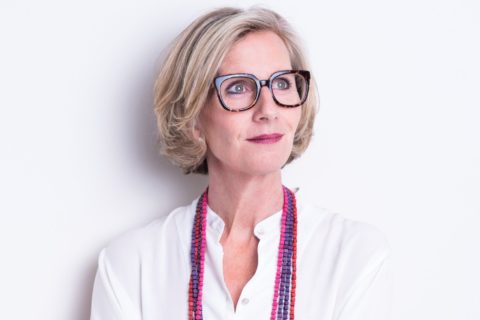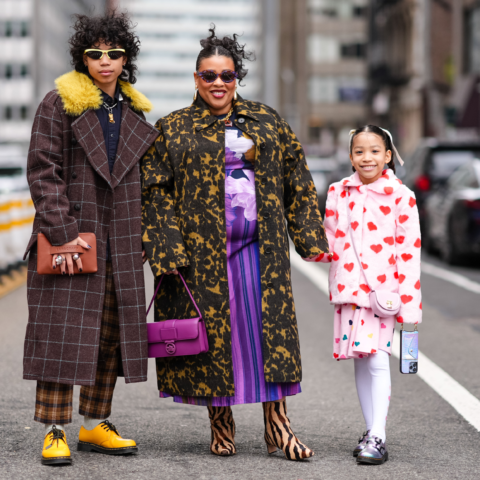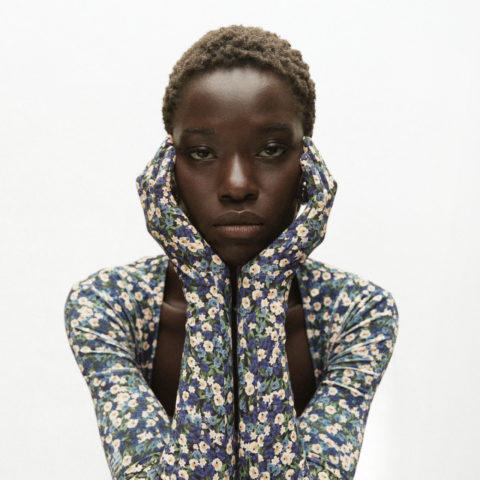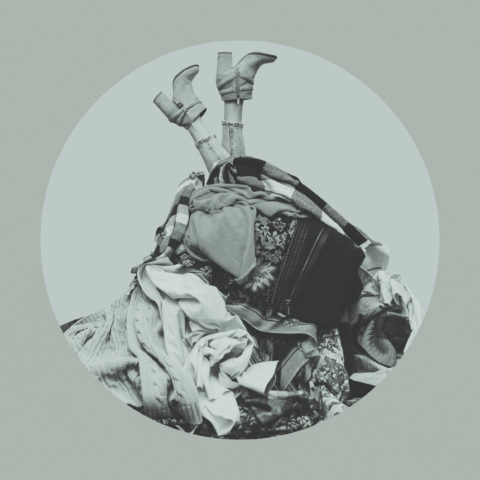Female Entrepreneurs Are Going to Build a Better World
They're supporting each other, and taking back their seat at the table.
This world was created without input from women. When the big decisions were made, women weren’t there. But if they were, Vicki Saunders willing to bet that the world would look a lot different today.
The founder, serial entrepreneur, and mentor is out to reconstruct the system by building a new model to invest in women: SheEO. Changing the world seems hard, but Saunders makes it simple: SheEO has launched a whole new funding model to support female innovators. It’s called Radical Generosity, and it brings 500 women together to contribute $1100 dollars each. That money is pooled together in a fund and then loaned out at 0% interest to five female entrepreneurs, and these entrepreneurs get 500 women on their team. So it’s a a funding model, but it’s also a support service and community of passionate (and powerful) women.
This year marks the first-ever Radical Generosity Week. The goal is to reach 1,000 activators (donors) to fund 10 women-led ventures by November 1st, 2017. Eventually, the fund will generate a $1 billion perpetual fund to support women for generations to come. Because it’s time for women to start writing the cheques, and making the big decisions.
We talked with Vicki Saunders about female empowerment, the definition of success, and how women in business have the power to influence positive change.
Obviously—and this is a huge conversation right now—it’s important for women to be supporting each other. Why do you think it’s so important for women in business specially to be lifting one another up?
We live in a world that was not designed by us, or for us. And it’s not working very well. It’s got a certain spirit that doesn’t fit very well with women’s values We’re highly collaborative, we’re not stepping over each other to win. We have a world right now where five men have the same wealth as 3.5 billion people. Half the planet. So we’ve aggregated money in a small number of hands, and that’s just not the world I want to live in. I want to live in a world where people who have great, innovative ideas and are going to hire people locally, create sustainable jobs, and create a better world are all going to be connected together. And so we need to redistribute our capital towards those kinds of companies. And the opportunity here is that women make 80% of purchasing decisions. If we decided to shift our capital towards the kinds of companies that are making a difference, that’s going to change the economy. And we have everything we need to do that right now.
And so you think that female driven companies are more likely to change the world? Whether that’s with sustainability, or …
Yes. The vast majority of female entrepreneurs started companies to create meaning, add value and build a better world. There’s a ton of statistics on that. We’re also highly capital efficient: we do so much with so little. And we get profitability more quickly than our male counterparts. So there’s just so many positive outcomes of supportive female entrepreneurs. And on top of all that, we pay back our debts! This idea of loans that are paid back over time and then loaned out again, this perpetual flow of money going out to female innovators, who literally have been starving for capital for decades. Only 4% of venture capital goes to women, and only one out of every $23 loaned by a traditional financial institution goes to women. Which is a huge, huge problem. So we need to have another model to fund women.
Why is it important for women to have female mentors?
This concept of supporting people on their own terms is very important to me, because I just look at the world and think everything’s broken. All we do right now in most of our incubators and execrators is say, “go big or go home.” I hear all the time, women with business ideas are told that their ideas aren’t going to scale, so don’t even try. I think that’s ridiculous. 98% of our economy is small and medium size business, and their creating sustainable jobs, connective tissue in our communities, stronger communities. For me I just think that a world where we’re much more collaborate, where we’re supporting businesses that create a better world, that’s where I want to put my money.
Do you think this some of this comes from men and women having different ideas of what success is?
Ya I think that’s exactly it. We are living in a world right now where there’s really only one definition of success: winner takes all. And that’s very broken, from my perspective. If we were starting all over again, and looking at what kind of world we would create, we wouldn’t want a place where five people have the same wealth as half the planet. We would want something where income is more widely distributed and looking at success as multiple different things. The fact that I have people in my network who make $20 million a year in revenue and have been doing so for 20 years, and raised their children on the side, and have a great company culture, and they don’t consider themselves successful because they haven’t IPO’ed? That’s crazy town.
There are these dated gender stereotypes. For so long we’ve thought of men as bold, and that this is what an entrepreneur needs to be. How are the stereotypes of women—that we’re collaborative and nurturing—characteristics that are important to an entrepreneur?
When I look at what we’ve done in our network, we’ve demonstrated this over and over. 100% of the loans are being paid back, the women in our network are growing their businesses at unbelievable rates. Up to 1100% revenue growth in under two years in our network. And that’s because women are walking in, they’re supported by people around them, they’re lifted up and emboldened and encouraged. One example: We had one women in our network who invented breathable food wrap. It keeps your food alive. If you wrap an avocado in Abeego, which is the companies name, it stays green for 4 days. It’s an amazing product. She’s been told her whole life that she’s too creative and she has too many ideas. If she was a guy, we’d call her an inventor. We treat women completely differently. So when she went out to get funding for this, men were like: “really, you’re going to take on Saran wrap? You don’t have a business degree, you don’t know what you’re doing.” She walked into our network, and we said, “omg you’re a visionary, this is amazing, where do I buy it.” And by the way, it’s easy to hire an operations person to help you. Inventing this is the hard part. It’s just a totally different way of looking at the same issue. So for me, I think there’s a massive opportunity that we have been missing, and that’s partly because women haven’t been writing cheques. So we have found a very innovative way to create an opportunity for women to come together at a very low price point and change this model.
Do you think that over the next decade we’re going to be seeing more women writing the cheques?
We are totally going to see more women writing the cheques.








